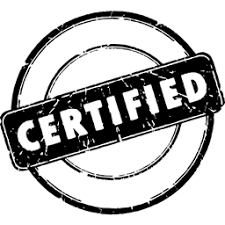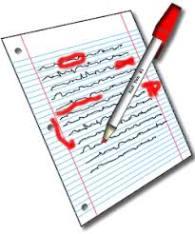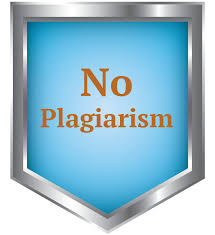 The third chapter of an MBA dissertation is a critical component that serves as the backbone of the entire research endeavor. It outlines the systematic approach employed to gather and analyze data, making it imperative that this section is well-structured and meticulously edited to ensure clarity and precision. At Petrian Editing Service, we understand the importance of a flawless methodology and are dedicated to offering expert assistance in editing this pivotal section. Our team of experienced MA dissertation chapter 3 editors specializes in providing comprehensive editing support for MBA students aiming to refine their work. We recognize that this chapter necessitates a keen eye for detail, coherence, and adherence to the research objectives. Our editing process is designed to enhance the overall quality of your work, ensuring that your research methodology is presented with utmost clarity and conciseness. When you choose us, you can expect a thorough review of your methodology. We will address issues related to grammar, punctuation, sentence structure, and overall coherence, ensuring that your research methodology is articulated in a manner that is not only academically sound but also reader-friendly. Moreover, our editors are well-versed in the specific requirements of dissertations, which means that we can help you align your chapter with the rigorous standards of your program. In the pursuit of academic excellence, this chapter should never be underestimated. Let our skilled editors assist you in refining this crucial section, so you can present your research with the precision and professionalism it deserves. With our dissertation editing support, your work will shine, elevating the overall quality of your project.
The third chapter of an MBA dissertation is a critical component that serves as the backbone of the entire research endeavor. It outlines the systematic approach employed to gather and analyze data, making it imperative that this section is well-structured and meticulously edited to ensure clarity and precision. At Petrian Editing Service, we understand the importance of a flawless methodology and are dedicated to offering expert assistance in editing this pivotal section. Our team of experienced MA dissertation chapter 3 editors specializes in providing comprehensive editing support for MBA students aiming to refine their work. We recognize that this chapter necessitates a keen eye for detail, coherence, and adherence to the research objectives. Our editing process is designed to enhance the overall quality of your work, ensuring that your research methodology is presented with utmost clarity and conciseness. When you choose us, you can expect a thorough review of your methodology. We will address issues related to grammar, punctuation, sentence structure, and overall coherence, ensuring that your research methodology is articulated in a manner that is not only academically sound but also reader-friendly. Moreover, our editors are well-versed in the specific requirements of dissertations, which means that we can help you align your chapter with the rigorous standards of your program. In the pursuit of academic excellence, this chapter should never be underestimated. Let our skilled editors assist you in refining this crucial section, so you can present your research with the precision and professionalism it deserves. With our dissertation editing support, your work will shine, elevating the overall quality of your project.
The Importance of a Well-Edited Methodology in a Dissertation
A well-edited methodology section is of paramount importance in a dissertation for several reasons. It serves as the blueprint for the entire project, outlining the precise steps and strategies to be employed. This clarity helps ensure that the research is conducted in a systematic and rigorous manner, enhancing the credibility and reliability of the findings. Furthermore, a well-edited methodology demonstrates the researcher's competence and expertise in selecting the most appropriate research methods and tools for their study. This is critical in MBA dissertations, as it showcases the ability to apply theoretical knowledge to real-world business challenges. Additionally, a meticulously edited methodology section provides a roadmap for future researchers and practitioners interested in replicating or building upon the study's findings. It facilitates transparency and reproducibility, which are essential for advancing knowledge in the business field. Moreover, in the context of an MBA program, a well-edited methodology is a reflection of the student's commitment to academic excellence and their ability to execute a high-quality research project, both of which are highly valued by academic institutions and potential employers. Relevantly, a well-edited chapter 3 is the backbone of an MBA project, guiding the research process, showcasing expertise, promoting transparency, and reflecting the researcher's dedication to scholarly and professional excellence.
How We Can Help to Edit Data Collection Methods in an MBA Dissertation
We can offer expert MBA dissertation methodology chapter editing assistance, to assist you in following the right approach. For an effective data collection method editing process, do this;
- Review the Research Objectives: Ensure that the data collection methods align with the research objectives. If there are discrepancies, discuss them with the researcher to make necessary adjustments.
- Evaluate Data Sources: Examine the sources of data (e.g., surveys, interviews, secondary data) for credibility and relevance. Suggest improvements or alternatives if needed.
- Consider Data Collection Techniques: Assess the chosen techniques (e.g., questionnaires, observations, case studies) for their appropriateness in capturing the required data. Recommend changes if certain techniques seem inadequate.
- Review the Sample Design: Review the sampling methods and sample size. Check if they are statistically sound and representative of the population. Recommend adjustments if necessary.
- Look into Data Instruments: Scrutinize the tools used to collect data (e.g., survey questions, interview guides). Ensure they are clear, unbiased, and capable of eliciting the desired information. Suggest revisions for clarity and neutrality.
- Assess Data Collection Procedures: Analyze the procedures for collecting data, including the timeframe and logistics. Ensure they are practical and feasible. Recommend modifications if needed.
- Do a Data Validation and Reliability: Discuss methods for ensuring data validity and reliability, such as pilot testing, inter-rater reliability checks, or triangulation. Recommend improvements in these areas.
- Scrutinize Data Analysis Plan: Ensure that the data collection methods align with the planned data analysis techniques. Recommend adjustments if there are discrepancies.
How Our Editors Ensure Consistency in Language, Terminology, and Formatting in Chapter 3
 Our editors employ a comprehensive approach to ensure consistency in language, terminology, and formatting in Chapter 3 of our documents. They adhere to established style guides, such as APA, Chicago, or our in-house style guide, to maintain consistency in formatting, citations, and references. This ensures that headings, subheadings, fonts, margins, and spacing are uniform throughout the chapter. To maintain linguistic consistency, our editors review the document for grammar, punctuation, and spelling errors. They also ensure that the tone and writing style remains consistent, adhering to the intended audience and purpose of the chapter. This consistency is particularly crucial when multiple authors contribute to a document. Regarding terminology, editors create and maintain a glossary or style sheet specific to the project. They cross-reference terminology throughout the chapter to guarantee that the same terms are consistently used. In case of ambiguity or multiple accepted terms, they consult subject matter experts to resolve discrepancies. Furthermore, they utilize software tools like spelling and grammar checkers and consistency-checking tools to aid in their review process. They also conduct multiple rounds of editing and proofreading to catch any inconsistencies that may have been missed during the initial review. Our editors' commitment to style guides, thorough linguistic reviews, terminology management, and the use of technology ensures a high level of consistency in language, terminology, and formatting in Chapter 3 and throughout our documents.
Our editors employ a comprehensive approach to ensure consistency in language, terminology, and formatting in Chapter 3 of our documents. They adhere to established style guides, such as APA, Chicago, or our in-house style guide, to maintain consistency in formatting, citations, and references. This ensures that headings, subheadings, fonts, margins, and spacing are uniform throughout the chapter. To maintain linguistic consistency, our editors review the document for grammar, punctuation, and spelling errors. They also ensure that the tone and writing style remains consistent, adhering to the intended audience and purpose of the chapter. This consistency is particularly crucial when multiple authors contribute to a document. Regarding terminology, editors create and maintain a glossary or style sheet specific to the project. They cross-reference terminology throughout the chapter to guarantee that the same terms are consistently used. In case of ambiguity or multiple accepted terms, they consult subject matter experts to resolve discrepancies. Furthermore, they utilize software tools like spelling and grammar checkers and consistency-checking tools to aid in their review process. They also conduct multiple rounds of editing and proofreading to catch any inconsistencies that may have been missed during the initial review. Our editors' commitment to style guides, thorough linguistic reviews, terminology management, and the use of technology ensures a high level of consistency in language, terminology, and formatting in Chapter 3 and throughout our documents.
A methodology is a critical component that demands meticulous attention and expert editing assistance. This chapter serves as the backbone of your research, providing the framework upon which your entire study rests. As such, it is imperative that it is refined to perfection to ensure the validity and reliability of your findings. Editing assistance for a methodology chapter is not a mere formality; it is a strategic investment in the success of your dissertation. A well-edited methodology chapter can enhance the clarity and coherence of your research design, data collection methods, and data analysis procedures. This, in turn, increases the overall quality of your dissertation and elevates its academic rigor. Furthermore, seeking our professional editing support can help you avoid common pitfalls such as methodological inconsistencies, vague descriptions, and ambiguous research procedures. Our editors can also offer valuable insights and suggestions to strengthen your methodology, ensuring that it aligns seamlessly with your research objectives and research questions. In the competitive world of academia and business, a flawlessly executed methodology chapter can make the difference between a dissertation that merely passes and one that excels. By investing in meticulous editing assistance, you are not just polishing your methodology; you are elevating your entire dissertation to the highest standards of excellence. Ultimately, this commitment to quality reflects your dedication to rigorous research and your potential for future success in the world of business and management.
Best Dissertation Chapter Three Editing Help for MBA Students
 When embarking on the arduous journey of pursuing an MBA degree, students are often confronted with the daunting task of crafting a dissertation that stands as a testament to their academic prowess and business acumen. Within this formidable academic odyssey, one of the most critical junctures lies in the meticulous construction of the third chapter, the heart of your research endeavor. It is at this juncture that the coherence, clarity, and precision of your research methodology and data analysis are scrutinized to the minutest detail. Recognizing the profound importance of Chapter 3 in the dissertation process, we proudly offer our expertise. With a dedicated team of seasoned dissertation section 3 editors and subject matter experts, we extend our helping hand to ensure that your project not only meets the rigorous academic standards but also exceeds them. Our commitment to your success is unwavering, and our quality dissertation methodology editing services are tailored to address every facet of Chapter Three, including research design, data collection, data analysis, and the presentation of findings. We understand the nuances of MBA research and the need for precision in every word and every statistical calculation. Our team works diligently to refine your dissertation, offering constructive feedback, enhancing the overall flow, rectifying grammar and syntax issues, and ensuring that your arguments are cogent and compelling. Rest assured, your work will emerge as a polished gem that reflects your dedication and intellectual prowess. With our assistance, you can confidently tread the path toward dissertation success, secure in the knowledge that your work has received the finest editing and refinement available. Your academic journey deserves nothing less than the best, and we are here to make that aspiration a reality.
When embarking on the arduous journey of pursuing an MBA degree, students are often confronted with the daunting task of crafting a dissertation that stands as a testament to their academic prowess and business acumen. Within this formidable academic odyssey, one of the most critical junctures lies in the meticulous construction of the third chapter, the heart of your research endeavor. It is at this juncture that the coherence, clarity, and precision of your research methodology and data analysis are scrutinized to the minutest detail. Recognizing the profound importance of Chapter 3 in the dissertation process, we proudly offer our expertise. With a dedicated team of seasoned dissertation section 3 editors and subject matter experts, we extend our helping hand to ensure that your project not only meets the rigorous academic standards but also exceeds them. Our commitment to your success is unwavering, and our quality dissertation methodology editing services are tailored to address every facet of Chapter Three, including research design, data collection, data analysis, and the presentation of findings. We understand the nuances of MBA research and the need for precision in every word and every statistical calculation. Our team works diligently to refine your dissertation, offering constructive feedback, enhancing the overall flow, rectifying grammar and syntax issues, and ensuring that your arguments are cogent and compelling. Rest assured, your work will emerge as a polished gem that reflects your dedication and intellectual prowess. With our assistance, you can confidently tread the path toward dissertation success, secure in the knowledge that your work has received the finest editing and refinement available. Your academic journey deserves nothing less than the best, and we are here to make that aspiration a reality.
Common challenges we help MBA students solve when editing dissertation methodologies
When editing methodologies for MBA projects, we address common challenges to enhance the quality and rigor:
- Research Design Clarity: We ensure that the research design is well-defined, aligning the chosen methodology with research objectives. This helps students avoid vague or ambiguous research plans.
- Data Collection Strategies: We assist in refining data collection methods, emphasizing their relevance to the research question and feasibility within the given context. This helps students collect meaningful and reliable data.
- Sampling Techniques: We review the sampling approach, ensuring it represents the target population accurately, minimizing bias, and providing statistical validity.
- Data Analysis Techniques: We help students choose appropriate statistical or qualitative analysis methods, ensuring they align with research goals and are correctly applied.
- Validity and Reliability: We scrutinize methodologies for potential threats to validity and reliability, offering suggestions to mitigate these threats.
- Time and Resource Management: We assist in optimizing resource allocation and time management, ensuring the research plan is realistic and feasible within the MBA program's constraints.
- Alignment with Theory: We check that the chosen methodology aligns with relevant theoretical frameworks, enhancing the theoretical grounding of the study.
- Communication and Clarity: We help students present their methodology in a clear, concise, and coherent manner within the dissertation, facilitating comprehension and evaluation by readers and assessors.
The benefits of seeking our editing help to refine chapter 3 of your MBA dissertation
We provide the best dissertation chapter three editing help for MBA students. Seeking our editing help to refine your work come with significant benefits which include;
- Improved Clarity and Structure: Our editors can help reorganize your ideas, ensuring a logical flow of information. It enhances the readability and comprehension of your work, making it easier for your readers to follow your arguments.
- Grammar and Language Enhancement: We can rectify grammatical errors, punctuation issues, and awkward phrasing.
- Style Consistency: We can maintain consistency in writing style throughout your dissertation. This is crucial for maintaining the professional tone required in academic writing.
- Elimination of Redundancy: Our editors can identify and eliminate redundancy, helping you to convey your ideas concisely and effectively.
- Enhanced Argumentation: Our skilled editors can review your arguments for coherence and relevance. They can suggest improvements or additions to strengthen your overall thesis.
- Formatting and Citations: We can ensure that your document adheres to the prescribed formatting guidelines (e.g., APA, MLA) and that citations are accurate and properly formatted, avoiding plagiarism issues.
- Quality Assurance: Our expertise serves as a quality control measure, reducing the risk of submitting a document with errors or inconsistencies.
- Time Efficiency: Editing can be a time-consuming process, and by seeking our professional help, you can save valuable time that can be invested in other aspects of your research.
- Increased Confidence: Knowing that your work has been thoroughly reviewed and refined by our experts can boost your confidence when defending your dissertation before a committee.
Specific techniques our editors use to improve the organization and flow of methodologies
Our editors employ several methods to enhance the organization and flow of methodologies in academic papers, research reports, or technical documents. These techniques, often part of the editorial process, ensure clarity and coherence. We ensure;
- Structural Analysis: We first conduct a thorough structural analysis, examining the order and hierarchy of sections and subsections. We verify if the methodology logically follows the introduction and precedes the results and discussion.
- Transition Sentences: Our editors insert transitional sentences or phrases to guide readers between different parts of the methodology. These bridges help readers follow the flow and understand the connections between steps or processes.
- Consistent Formatting: We ensure consistent formatting of headings, lists, and figures within the methodology section, making it easier for readers to navigate and comprehend.
- Parallelism: Our editors encourage the use of parallel structure in lists or steps, maintaining a consistent grammatical pattern, which aids readability.
- Clear Language: We suggest revisions to clarify complex terminology or jargon, using plain language without sacrificing precision.
- Logical Flowcharts: For intricate methodologies, our editors may recommend the use of flowcharts to visualize processes and dependencies.
- Revisions Iteration: We work closely with authors through multiple revision iterations to fine-tune the methodology until it achieves optimal organization and flow.
 Chapter 3 is the backbone of any dissertation. It is the section where students showcase their ability to design rigorous research and extract meaningful insights from data. Given its significance, ensuring its clarity, coherence, and precision is paramount. MBA students, who are often juggling multiple responsibilities, can greatly benefit from professional editing services. We not only ensure grammatical accuracy and adherence to formatting guidelines but also provide a fresh perspective on the content. Our editors can identify gaps in logic, improve the flow of ideas, and enhance the overall quality of Chapter 3. Moreover, collaborating with our experts can be a valuable learning experience. They provide valuable feedback and suggestions that contribute to the development of strong research and analytical skills, which are essential for students to excel in their future careers. Capitalizing on our services is an investment in academic excellence and future professional success. We not only refine the dissertation but also hone critical skills that will serve students well beyond their academic pursuits. So, whether it's refining a research methodology or sharpening data analysis, seeking our expert editing assistance is a wise choice.
Chapter 3 is the backbone of any dissertation. It is the section where students showcase their ability to design rigorous research and extract meaningful insights from data. Given its significance, ensuring its clarity, coherence, and precision is paramount. MBA students, who are often juggling multiple responsibilities, can greatly benefit from professional editing services. We not only ensure grammatical accuracy and adherence to formatting guidelines but also provide a fresh perspective on the content. Our editors can identify gaps in logic, improve the flow of ideas, and enhance the overall quality of Chapter 3. Moreover, collaborating with our experts can be a valuable learning experience. They provide valuable feedback and suggestions that contribute to the development of strong research and analytical skills, which are essential for students to excel in their future careers. Capitalizing on our services is an investment in academic excellence and future professional success. We not only refine the dissertation but also hone critical skills that will serve students well beyond their academic pursuits. So, whether it's refining a research methodology or sharpening data analysis, seeking our expert editing assistance is a wise choice.






